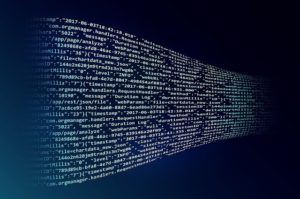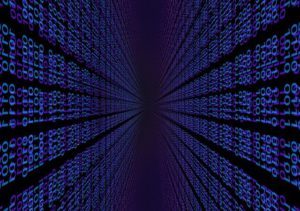
Data science has undoubtedly been in high demand. Companies would like to hire people with expertise in this and other related fields, but they have a relatively hard time finding qualified workers. Therefore, online big data courses are almost guaranteed to put you in demand as an employee or executive. Also, companies will find that buying these courses for their workers is a great way to give the whole company a leg up.
Big Data Systems, Programs, and Uses
Basically speaking, big data is exactly what it sounds like – unprecedentedly huge bodies of information. Digital networks, especially the internet, allow data to be amassed in ever-increasing quantities. Unfortunately, not everyone knows how to take this great quantity and make high-quality conclusions.
Thankfully, academic institutions are rising to meet this need – you can get big data degrees the traditional way at most universities. However, you can also get resume-boosting certifications and even full degrees with online big data courses from some great universities. Online courses are perfect for those who have a traditional business management or computer science degree but are realizing that they need to update their knowledge to keep up with a changing world.
Big data is not just about acquiring and holding data; it is also about processing and presenting data in ways that are ethical, accurate, and clear to concerned parties. There are various frameworks, techniques, and software made to meet these needs; however, those involved must know both how to use these tools and how to choose the right tools for the tasks at hand. Most digitally up-to-date companies use some sort of cloud-based service to hold and/or process data. The relatively new programming languages R and SQL are built for handling very large data sets. Apache is the leading software for managing IT systems with big data.
Big data is not just for corporations; it is also relevant to computer scientists, because of its role in machine learning (the process by which computers actually learn processes and information, rather than being directly programmed). Therefore, computer scientists who want to improve artificial intelligence must first understand big data and its role in the process.
A Great Source of Big Data Education
Whether you are just exploring to find out what you want to do or you want to seriously pursue a certain degree, look at edX for excellent, easy-to-use, online big data courses. edX is an online course website that offers courses in a variety of exciting subject areas – along with Professional Certificate, MicroMaster’s, and master’s programs – all offered by top-notch universities around the world. A MicroMaster’s will get you part of the way to getting an online master’s degree from the university that supports the MicroMaster’s, and it is also a valuable and credible resume component – the same is true for Professional Certificates.
All courses themselves are free; however, if you want a verified certificate (essential if you want any sort of credit or official recognition) you must pay the price of the course. Note that edX prices are substantially lower than most college’s rates, however. Degrees and courses composing a certificate program have a total price posted, but this total is less than if you took each course for a verified certificate by itself.
edX gives you a cheaper, more energy-efficient path to a degree or new skill – you do not have to drive anywhere and you can work at your own pace, as almost all courses are self-paced. In case you are interested, edX also has courses in almost all other areas: Engineering, environmental science, medicine, math, humanities, languages, and so much more.
Some of the Very Best Big Data Courses
If you are totally new to big data and would like to get a sense of what it is and what you can do with it, consider Introduction to Big Data, which is the first course in Microsoft’s Professional Program Certificate in Big Data. A great thing about this course is that, if you do indeed want to get a certificate, this course gets you a small part of the way there – provided you purchase a verified certificate to prove your success. The course covers basic elements of data analysis: the collection, storage, processing, and presentation of data.
It also covers more specific topics: Azure – a collection of cloud services offered by Microsoft; NoSQL (an example of a non-relational – or not tabulated – storage of data); and Apache Hadoop and Spark – two frameworks that allow computers to operate as a network. These details might sound daunting if you are a total beginner, but realize that this course is relatively short in duration and there are no prerequisites – it really is for beginners.

For an introductory course that focuses more on the statistics and computer science aspects of data science, look at Computational Thinking and Big Data from the University of Adelaide in Australia. This course is part of Adelaide’s Big Data MicroMaster’s program. First and foremost, it gets the learner used to computational thinking – defining problems such that they can be solved by a computer.
Then, it addresses how to collect, clean, and consolidate very large sets of data. (Here, cleaning is a term for finding and correcting data that is inaccurate or otherwise inappropriate.) Also covered are the R and Java programming languages and their data processing libraries. Also covered are programming skills such as decomposition (breaking a task into steps) and abstraction (establishing how detailed a program needs to be). The course also gets into statistics topics, such as Bayesian models – statistical models that focus on the extent to which a given conclusion is believable.
For something on the intermediate level and more extensive, consider Big Data Fundamentals, also offered by the University of Adelaide and part of its Big Data MicroMaster’s program. This course is chock-full of introductions to practical applications of big data: word document processing, recommendation lists for buyers on online stores, and Google Ad stats – to name a few.
It illustrates how the MapReduce process is used to create PageRank algorithms (measurement of web page importance based on search engine data). It covers such data analysis topics as data mining (finding patterns in large data sets) and random walk algorithms (processes that involve inherently random steps).

Another intermediate course in Adelaide’s Big Data MicroMaster’s program is Big Data Analytics. This course especially focuses on R (the previously mentioned programming language aimed at statistical analysis of large sets) and Apache Spark (a previously mentioned framework, in which networked computers can almost be thought of as a single computer). This course especially focuses on big data’s capacity to meet business needs, and so there is a discussion of cloud services, predictive analytics, and problem-solving. Artificial intelligence and machine learning will impact business management; and so these exciting, but more advanced, computer science topics are addressed during the last quarter of this course.
For an intermediate-level course that focuses more on the business aspect of big data, consider Big Data Strategies to Transform Your Business from the Delft University of Technology in the Netherlands. This course covers business management concepts such as product life cycle (initial idea for a product, design, manufacture, service, and finally disposal of product), business mode canvas (a broad plan/map of action), organizational theory (actually a type of theorization that encompasses multiple theories of business organization), and stakeholder concerns.
The course addresses the impact that big data has on business management and gives a sense of the challenges faced by Chief Digital Officers (CDOs) and Chief Information Officers (CIOs). (CIOs are in charge of a company’s IT needs. CDOs take the use of technology one step further by helping a company create and utilize digital sources of data, such as social media or mobile apps.) If you are – in any capacity – trying to modernize a business, this is the course for you.
Big Data: The Ultimate Marketable Skill
Computer science and IT skills are famously in-demand; arguably, big data is a sort of interdisciplinary field that comprises aspects of these two large areas, plus others such as business management, mathematics, statistics, and (if you are talking about data presentation) digital graphics. Therefore, big data will likely make all of the related skills all the more valuable; it will also impact how skills in these areas are best used. Also, people who have the ability to make innovative connections between big data and other tasks will have a rewarding niche.
All of this probably sounds very exciting, but you may feel that it cannot be for you – perhaps you were never good at school math. Do not assume that this is a deal breaker; computer science is more about problem-solving and strategy than it is about adding and subtracting in your head – the computer does the monotonous work for you. Furthermore, many people are energized at the prospect of working on a real problem rather than homework problems that are ambiguous in their relevance. In a field that encompasses so many challenges and skills, there is likely to be a great role for you.